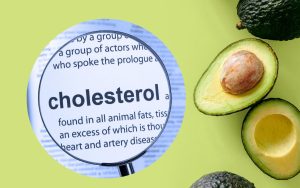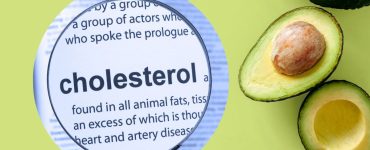Avocado, a creamy and delicious fruit, has gained immense popularity in recent years due to its numerous health benefits. In this article, we will delve into the scientific research surrounding avocados and their potential role in reducing the risk of cancer.

While no single food can guarantee complete protection against cancer, understanding the evidence-backed benefits of avocados can empower us to make informed dietary choices for a healthier lifestyle. So, let’s explore the fascinating findings and unravel the connection between avocados and cancer prevention.
Understanding Cancer and Its Risk Factors
Cancer is a complex and devastating disease that affects millions of people worldwide. To comprehend the potential role of avocados in cancer prevention, it is essential to have a basic understanding of cancer and its risk factors.
Overview of Cancer
Cancer refers to a group of diseases characterized by the abnormal growth and division of cells in the body. These cells can invade nearby tissues and, in advanced stages, spread to other parts of the body through a process called metastasis. Cancer can develop in any part of the body, and there are numerous types, including breast, lung, colorectal, prostate, and more. It is a leading cause of morbidity and mortality globally.
Common Risk Factors
While the exact causes of cancer are not fully understood, several risk factors have been identified. These risk factors increase an individual’s likelihood of developing cancer. Some common risk factors include:
- Age: Cancer incidence tends to increase with age, with many types being more prevalent among older adults.
- Tobacco Use: Smoking or chewing tobacco is a significant risk factor for various cancers, such as lung, mouth, and throat cancer.
- Family History: Certain types of cancer can run in families, indicating a genetic predisposition to the disease.
- Environmental Factors: Exposure to environmental hazards like radiation, certain chemicals, and pollutants can increase cancer risk.
- Poor Diet and Physical Inactivity: Unhealthy eating habits, lack of physical activity, and obesity have been linked to an increased risk of developing certain cancers.
- Chronic Infections: Infections caused by certain viruses (e.g., human papillomavirus, hepatitis B and C) or bacteria (e.g., Helicobacter pylori) can contribute to cancer development.
Importance of Preventive Measures
Given the multifactorial nature of cancer, adopting preventive measures is crucial in reducing the risk of developing the disease. While not all cancer cases are preventable, embracing a healthy lifestyle and making informed choices can significantly lower the likelihood of cancer occurrence.
Understanding the risk factors associated with cancer empowers individuals to take proactive steps towards prevention, and this includes exploring the potential benefits of certain foods, such as avocados, in mitigating cancer risk.

Avocados and Cancer-Fighting Phytochemicals
Phytochemicals: Nature’s Cancer Warriors
Phytochemicals are naturally occurring compounds found in plant-based foods that offer various health benefits. These compounds, often referred to as phytonutrients, are not essential nutrients like vitamins and minerals, but they possess powerful properties that can support overall health and potentially combat cancer.
Prominent Phytochemicals in Avocados and Their Anti-Cancer Properties
Avocados are rich in a diverse array of phytochemicals, each with its unique set of potential health benefits. Let’s explore some of the prominent phytochemicals found in avocados and their specific anti-cancer properties.
Glutathione: Detoxifying and Immune-Boosting Properties
Glutathione is a powerful antioxidant produced naturally by the body. Avocados contain high levels of this important antioxidant, which plays a vital role in detoxification processes within the body. By neutralizing harmful toxins and free radicals, glutathione helps protect cells from damage and supports a healthy immune system, potentially reducing the risk of cancer development.
Carotenoids: Potential Role in Inhibiting Cancer Growth
Carotenoids are a group of pigments responsible for the vibrant colors found in fruits and vegetables. Avocados are particularly rich in carotenoids, including beta-carotene, lutein, and zeaxanthin. These carotenoids possess antioxidant properties and have been associated with a reduced risk of certain cancers, such as lung, breast, and prostate cancer. They may help inhibit the growth of cancer cells and reduce oxidative stress, promoting overall cellular health.
Flavonoids: Antioxidant and Anti-Inflammatory Effects
Flavonoids are another class of phytochemicals abundant in avocados. These compounds have been widely studied for their antioxidant and anti-inflammatory effects. By reducing inflammation and oxidative stress in the body, flavonoids can potentially help prevent DNA damage, inhibit the growth of cancer cells, and decrease the risk of chronic diseases, including certain types of cancer.
Avocados and Specific Types of Cancer Prevention
Colorectal Cancer
Colorectal cancer is one of the most common types of cancer worldwide, and diet plays a crucial role in its prevention. A diet rich in fiber has been associated with a reduced risk of colorectal cancer, and avocados can contribute to this fiber intake.
The high fiber content in avocados promotes healthy digestion, helps maintain bowel regularity, and supports a healthy gut environment. By incorporating avocados into the diet, individuals can potentially reduce their risk of developing colorectal cancer.

Breast Cancer
Breast cancer is a significant concern for women globally, and dietary factors have been extensively studied for their role in prevention. High-fat diets, particularly those rich in unhealthy saturated fats, have been linked to an increased risk of breast cancer.
Avocados, on the other hand, provide a source of healthy monounsaturated fats, which have shown potential protective effects against breast cancer. Including avocados as a substitute for unhealthy fats in the diet may contribute to a healthier dietary pattern and potentially reduce the risk of breast cancer development.
Prostate Cancer
Prostate cancer is the most common cancer among men, and diet has been identified as a modifiable risk factor. Avocados offer several components that may contribute to prostate cancer prevention.
Firstly, their rich content of monounsaturated fats can help reduce inflammation and oxidative stress, which are implicated in prostate cancer development. Secondly, the presence of various antioxidants and phytochemicals in avocados may help protect prostate cells from damage and inhibit the growth of cancer cells. While more research is needed to establish direct causation, incorporating avocados into a well-rounded diet may have a beneficial impact on prostate cancer prevention.
Incorporating Avocados into a Cancer-Preventive Diet
Practical Tips for Including Avocados in Your Meals
Avocados are not only nutritious but also incredibly versatile, making it easy to incorporate them into your daily diet. Here are some practical tips to help you enjoy the benefits of avocados as part of a cancer-preventive diet:
Avocado as a Healthy Fat Substitute in Cooking and Baking
Swap unhealthy fats, such as butter or margarine, with mashed avocado in recipes like muffins, cakes, and even savory dishes. Avocado adds a creamy texture and richness while providing beneficial monounsaturated fats.
Creative Ways to Incorporate Avocados in Salads, Smoothies, and More
Dice or slice avocados and add them to your favorite salads for a boost of flavor and texture. Blend avocados into smoothies for a creamy consistency and added nutrients. You can also use mashed avocado as a spread on whole-grain toast or as a topping for grilled vegetables or lean proteins.
The Importance of a Well-Balanced Diet for Overall Cancer Prevention
While avocados offer potential benefits for cancer prevention, it is crucial to maintain a well-balanced diet that includes a variety of nutrient-rich foods. Focus on incorporating a rainbow of fruits and vegetables, whole grains, lean proteins, and healthy fats into your meals. Strive for moderation and portion control, as excessive calorie intake can contribute to weight gain, which is a risk factor for several types of cancer.
Other Dietary Factors to Consider Alongside Avocados for Optimal Health
While avocados provide valuable nutrients, they are just one piece of the puzzle when it comes to cancer prevention. Pay attention to other dietary factors that can contribute to overall health and reduce cancer risk:
- Eat a Rainbow of Fruits and Vegetables: Aim for a diverse range of colorful fruits and vegetables to maximize your intake of vitamins, minerals, and phytochemicals that support cellular health.
- Whole Grains and Fiber: Incorporate whole grains, such as quinoa, brown rice, and whole wheat bread, into your meals for their fiber content, which aids digestion and may reduce the risk of certain cancers.
- Lean Proteins: Choose lean sources of protein, such as fish, poultry, beans, and tofu, and limit red and processed meat consumption, which has been linked to an increased risk of colorectal and other cancers.
- Stay Hydrated: Ensure you drink an adequate amount of water each day to support overall health and proper bodily functions.
Conclusion
While avocados are not a magical cure for cancer, emerging scientific research suggests that they may indeed play a significant role in cancer prevention. Their unique combination of phytochemicals, antioxidants, and healthy fats showcases promising properties that can help inhibit cancer growth and reduce the risk of certain types of cancers. By incorporating avocados into a balanced and varied diet, individuals can benefit from their potential anti-cancer effects along with other health advantages they offer.








